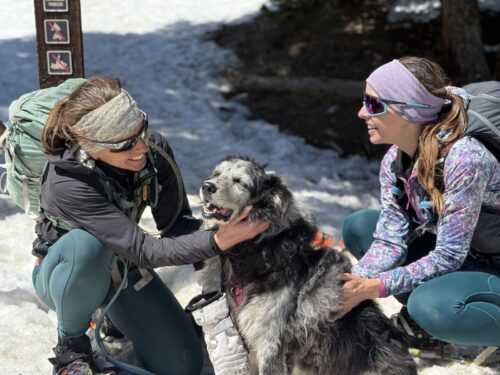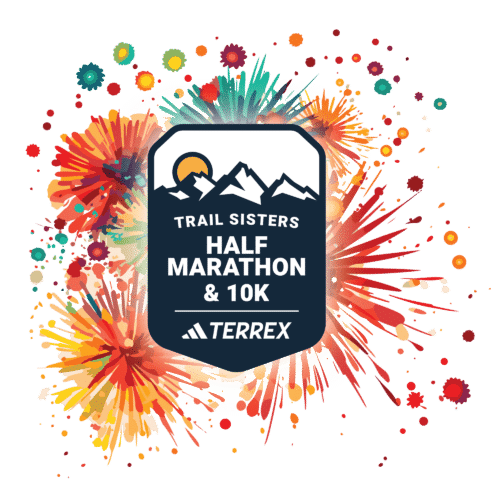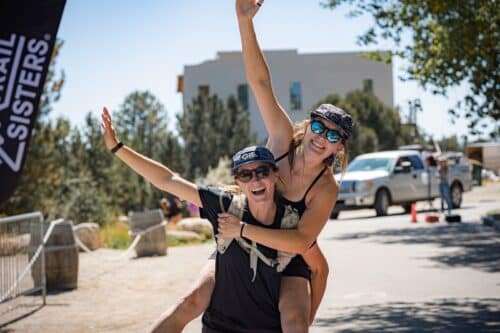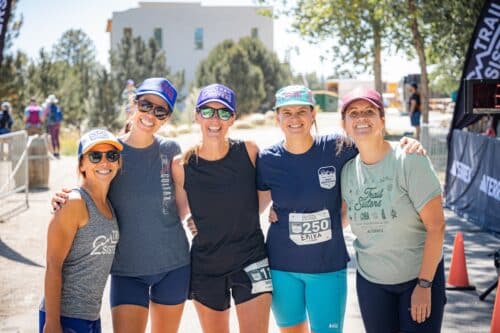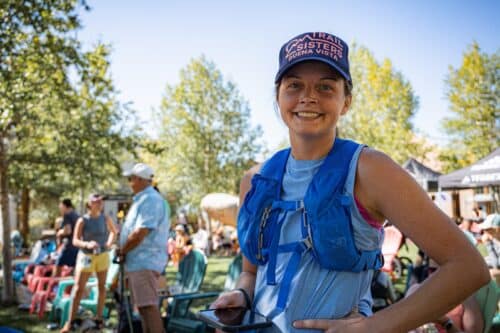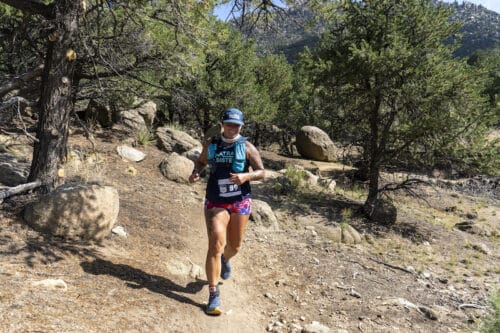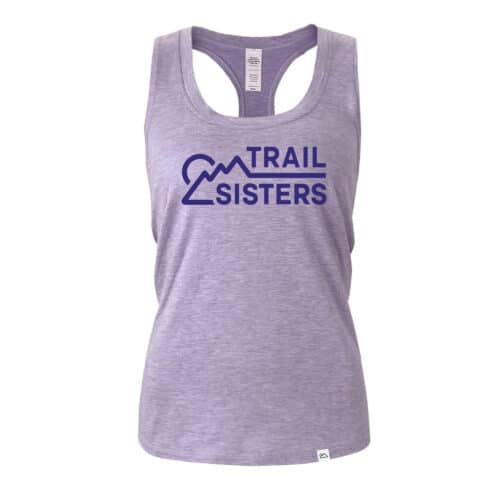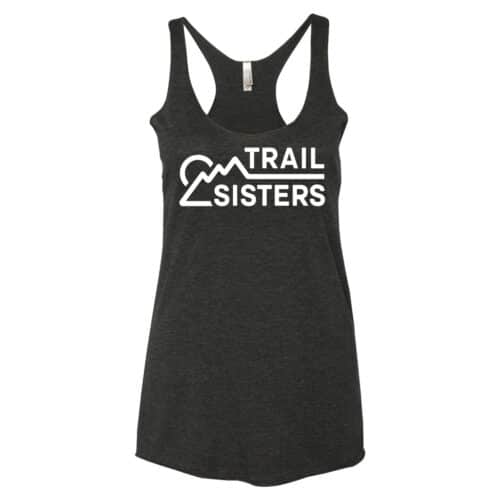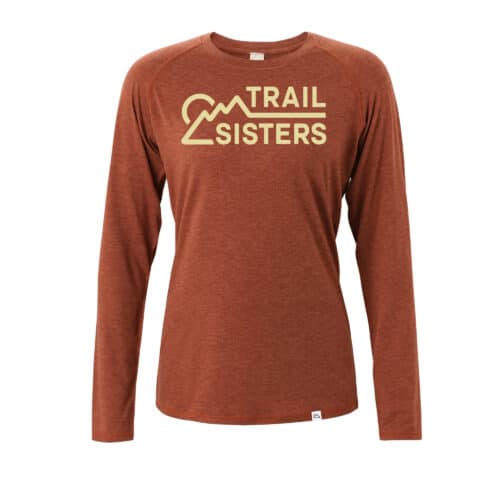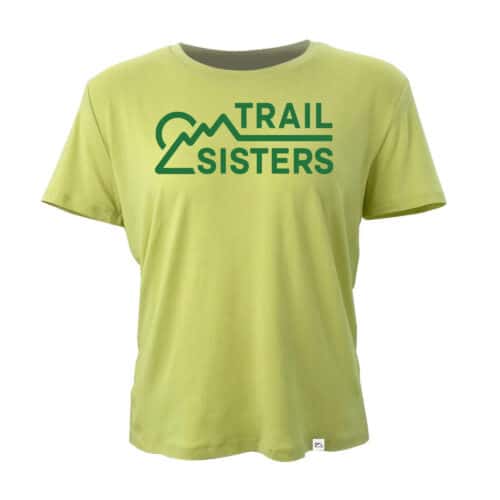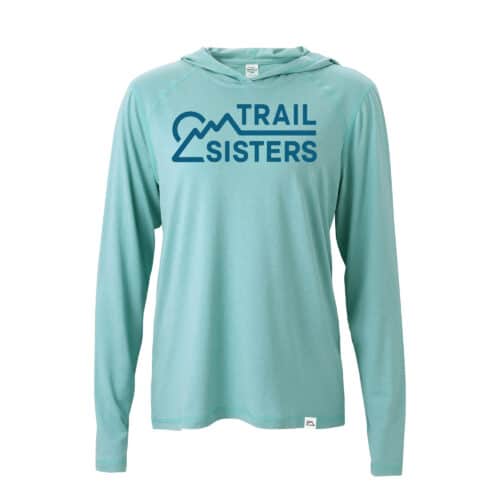Main Menu
The Saturday Long Run Starts on Friday

Marcia has been a runner most of her life and values it more now than ever. She trains on her own for the most part. She really enjoys early morning runs while the world is asleep. Competing in races is fun, as Marcia likes to see her training plan complete when she crosses the finish line. She is an advocate for service to the running community and volunteer to help at a local race each year. Over the years she has informally mentored other women starting out with running so it is really exciting to launch her business, Dority Baker Coaching, LLC. She is a UESCA (United Endurance Sports Coaching Academy) certified ultra running coach. Marcia is proud of her trail running finishes: 100m (1) 100k (1), 50M (3), 50k (5) and a variety of other distances. She ran her first 100M race in October 2021.
Share This Article!


By: Marcia Dority
I’m at that stage in my next ultra-race training (Kettle Moraine 100k in June 2022) where many of my Saturdays are booked with long runs. Or what I call a date with mother nature, gravel roads, and my trusty gear. I admit, the first few long runs can be daunting. The thoughts – how far do I need to run, what route should I take, what fuel should I use, am I ready – can be daunting. However, the process of training for an ultra is half the challenge of preparing for a race. The destination will come but it’s one’s growth during the journey that’s most important. Instead of dreading the long run, I have learned to embrace the opportunity to improve my mental game as well as my physical preparedness for a race. I appreciate that I learn more with every training season. Here are some tips I use with each ultra-race I register for.
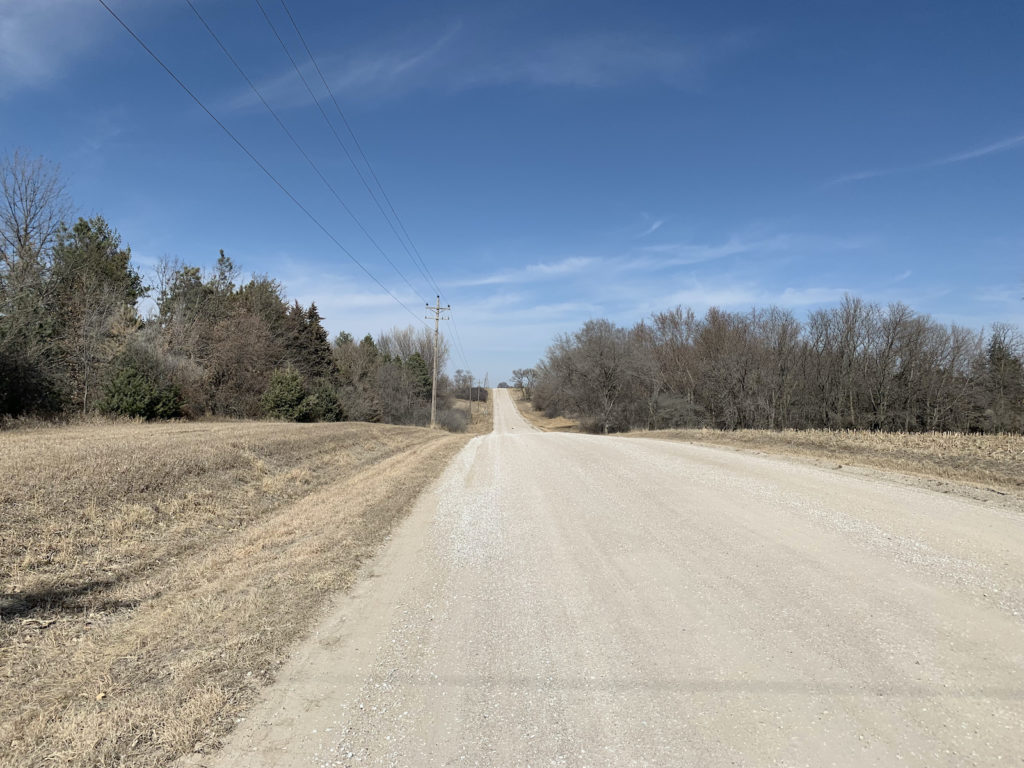
“You cannot have both a positive life and a negative mind.” Joyce Meyer
A positive mindset goes a long way and ultra-races are a long way to go! Sometimes the most challenging thing to overcome is one’s mindset. Tip #1 – think about what you are thinking about. I have learned to rephrase my long run from, “I have to run XX number of miles,” to, “I get to run outside this weekend…and the route I’m taking goes by the llamas!” I will talk to myself about what I like about my long run including what I’ll see along the route; the rolling gravel hills, the sounds of spring coming to life, the quiet time I have watching the sun rise. Visualizing where I will be running along with what I will experience helps me mentally prepare for the run. Research continues to show that purposely thinking about your race or training is a benefit that will help overcome the tough parts of a run. The best part is that we can start being positive before a long run which will improve our attitudes and performance, and help us enjoy the day! An action item for your next run – focus on how you get to go running, not that you have to run. Reframing a training run as an opportunity to move or go outside will improve one’s mindset.
“To be prepared is half the victory.” Miguel de Cervantes
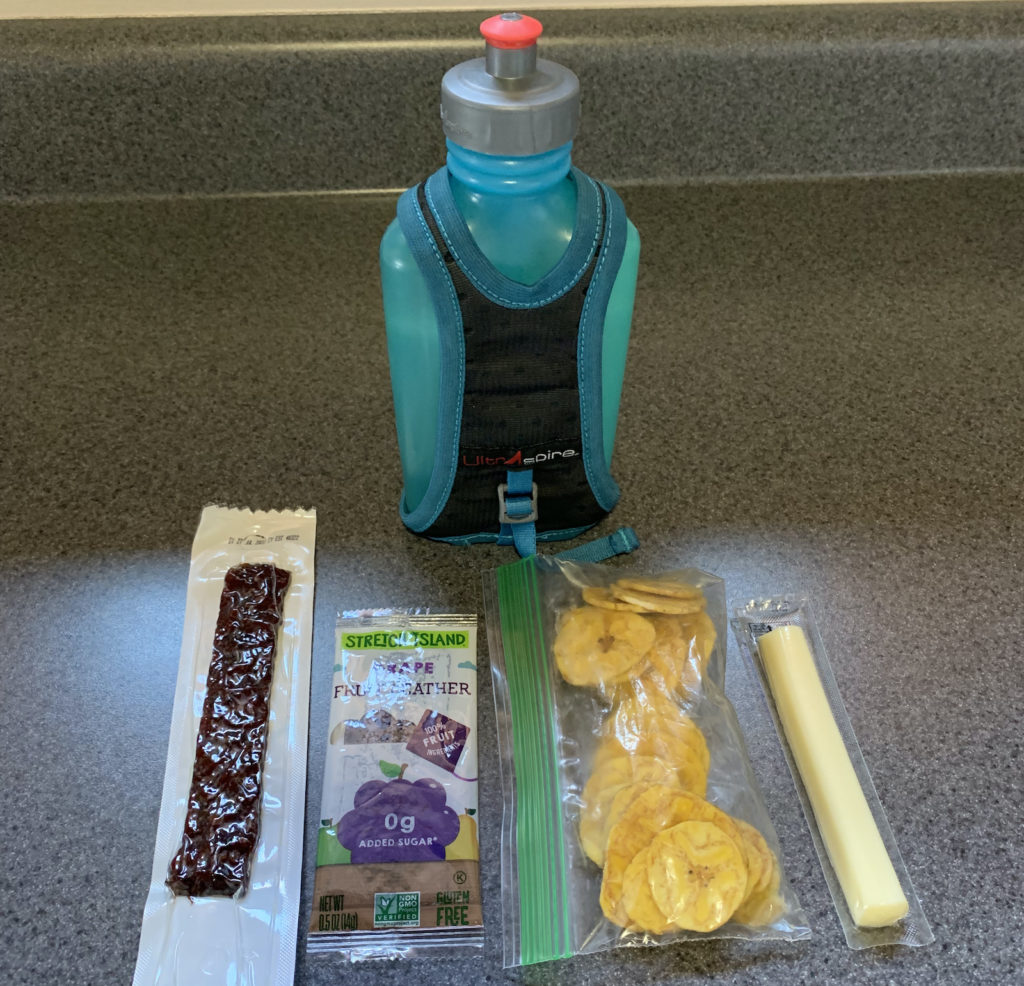
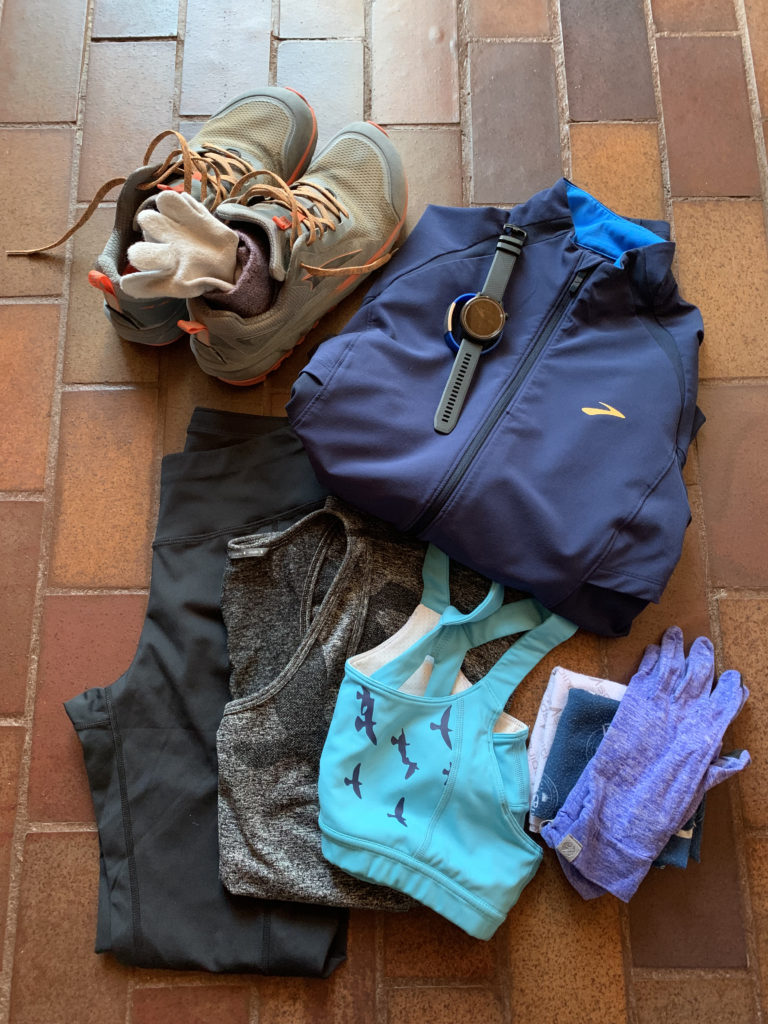
Tip #2 – Plan your gear, plan your fuel, plan your route, and take notes. A first key component for the long run is being prepared by having proper gear, including a plan for your fuel and hydration needs. My Saturday long runs are a safe way to try different foods for fueling. I have learned that my stomach is better when I use real food such as plantain chips, fruit strips, or trail mix, rather than gels on my long runs. Through trial and errors, I also know which sports bras have the least amount of chafing, which socks are better in the humid summers than cold, dry winters, and most importantly which shorts are the most comfortable after 18 miles. Learning about what food and gear work well for me in the safety of my long run training equals success in my future race.
The second key component for the long run is knowing what routes to run. I live in Nebraska which is a pretty flat state 🙂 If I am training for a race with elevation or step terrain, I need to find a route that mimics race conditions. While I may not be able to run every training run on a similar profile to the race, I can purposely find options that will support my training needs. I ran cross country in high school, and many of our long runs were on rolling gravel roads to prepare our legs for hilly courses. I use a similar training plan now – I know that the Kettle Moraine course is hilly so I’m running the rolling gravel roads in my area and the steeper trails in our state parks.
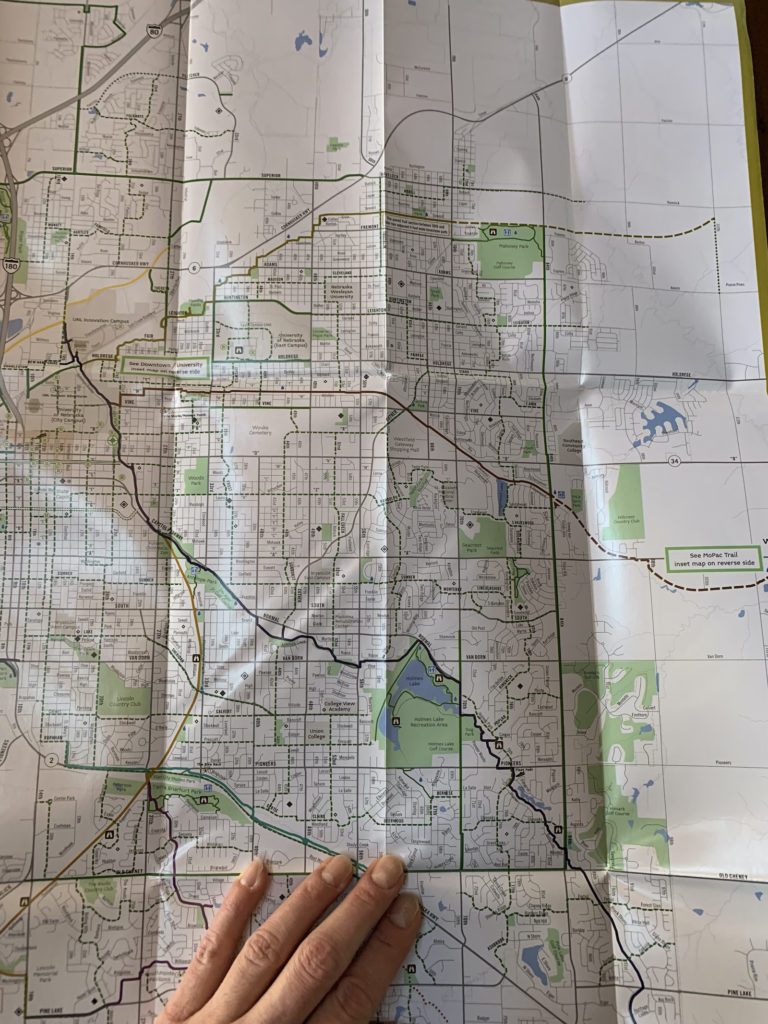
The final piece of preparation is documentation. I have used a calendar to mark my miles and training stats for 7-8 years. It’s old-school to use a print calendar but I find being able to see the whole month a benefit. It also allows me to review an entire year (current or previous) to track trends in my running and review training plans. When I test new gear (shoes, shorts, jacket) or fuel, I add notes to my long run training plan for what worked and didn’t (plantain chips – yes; peanut butter packet – no).
In regard to being prepared, respect the miles, respect yourself. You will spend A LOT of time with yourself on a long run. Embrace the experience by being prepared with the gear and fuel that works best for you. This provides a more enjoyable experience because you wore the shorts that don’t chafe after 60 minutes on the trail.
“Take care of your body. It is the only place you have to live.” Jim Rohn
Tip #3 – pay attend to the pregame. I have found that how I spend my Friday is important for Saturday running success. This includes how busy I am during the day but more importantly what I eat for dinner the night before a long run. As runners, we know that the pre-race meal is imperative for a race but do we treat the night-before a long run dinner the same way? This is a great opportunity to practice eating good food to fuel the long run, to train one’s gut on what works (and doesn’t), and to learn how long things take to digest well. It’s imperative to eat what works best for your system the night before a long run as a spicy burrito bowl from Chipotle once taught me!
What’s also important is sleep. As adults we know sleep is important and as runners we read how valuable sleep is for rest and repair of our bodies. I find that sometimes the bigger challenge is getting to bed at a regular time, especially on a Friday. The benefit of a regular sleep routine is a better prepared body, an improved mental state, and the ability to get up early for the long run or to better balance a busy weekend. There are many articles and books on the benefits of sleep, so here’s a gentle reminder to turn off the devices 60 minutes before bed, practice winding down for the day, read a chapter or two of a print book, and practice a healthy sleep routine.
My final to-do item the morning of a long run is to fuel well. I love breakfast; a couple eggs with a cup of coffee are my regular morning meal. But I need to eat early enough to digest before I head out. I find that purposely getting up earlier helps me from rushing through the morning. This routine before a long run pays off on race day. I know what food works for my body, have my gear ready, the route mapped out, and know when I need to start my Saturday long run to mimic race day.
Practicing for the long run; taking care of the logistics, preparing mentally and physically, as well as reframing the experience as an opportunity to get outside, help me better enjoy my training. It’s not always easy to enjoy the long run but my attitude toward it has improved which I am grateful for. Listen to your body, it will tell you what it needs. Listen to your heart, the answer is inside you.
References:
https://www.outsideonline.com/health/training-performance/how-visualizing-can-supercharge-your-running/
About the Author

Marcia has been a runner most of her life and values it more now than ever. She trains on her own for the most part. She really enjoys early morning runs while the world is asleep. Competing in races is fun, as Marcia likes to see her training plan complete when she crosses the finish line. She is an advocate for service to the running community and volunteer to help at a local race each year. Over the years she has informally mentored other women starting out with running so it is really exciting to launch her business, Dority Baker Coaching, LLC. She is a UESCA (United Endurance Sports Coaching Academy) certified ultra running coach. Marcia is proud of her trail running finishes: 100m (1) 100k (1), 50M (3), 50k (5) and a variety of other distances. She ran her first 100M race in October 2021.
Share This Article!



